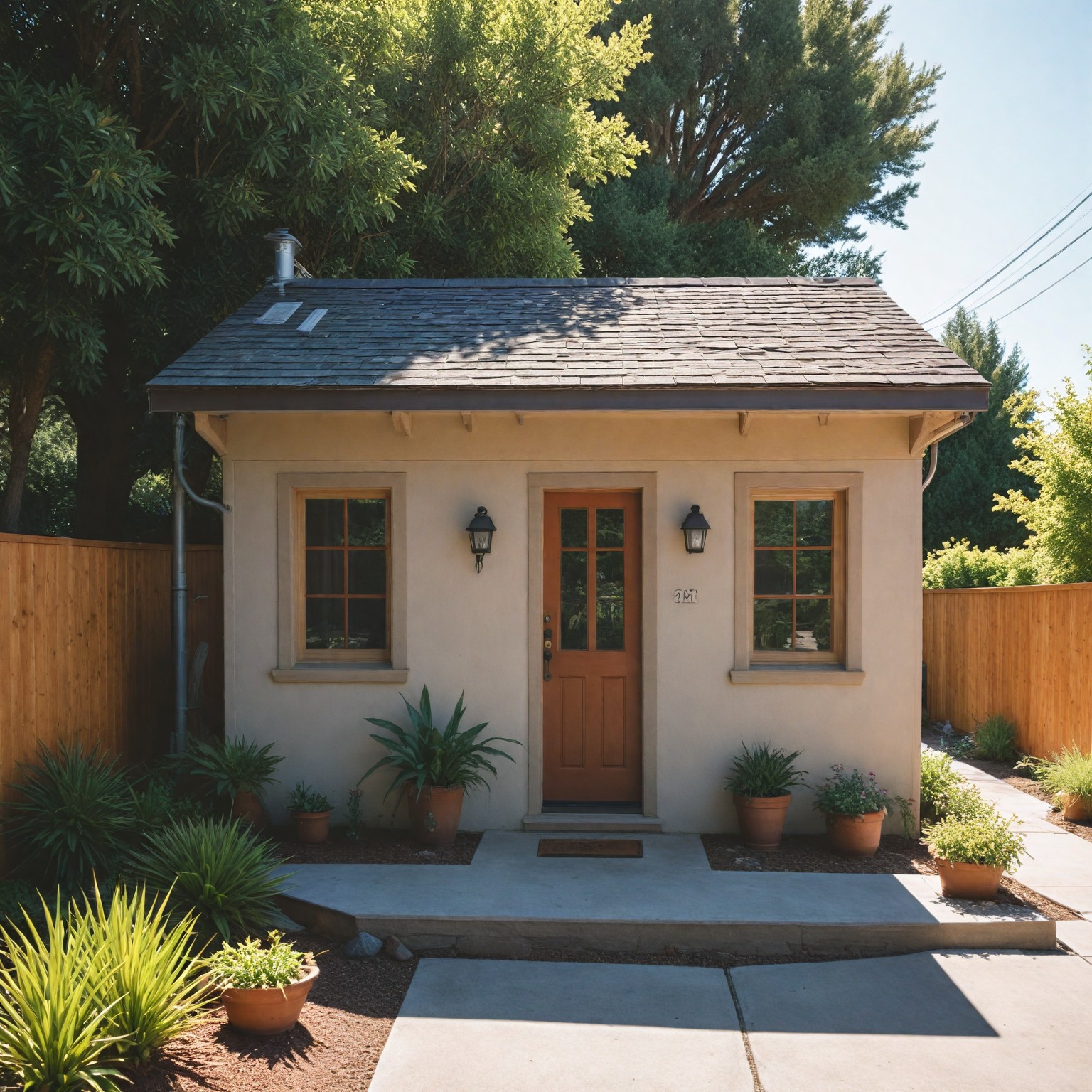Thinking about transforming your garage into a cozy living space? You're not alone. Many homeowners are converting their garages to maximize their home's potential. Whether you need an extra bedroom, a home office, or a rental unit, converting your garage can be an excellent investment. In this blog post, we'll explore all the ins and outs of garage conversion costs, helping you make an informed decision.
Why Convert Your Garage?
Garage conversions have gained popularity for several reasons. Not only do they add functional living space, but they also increase property value. Here are some compelling reasons why homeowners choose to convert their garages:
Increased Living Space
A garage conversion is perfect for growing families or those needing extra room without the hassle of moving. Instead of looking for a larger home, you can transform the space you already own. This is especially beneficial for urban homeowners dealing with limited square footage.
Rental Income
Turning your unused garage into a rental unit can generate extra income. With the rising demand for affordable housing, renting out a converted garage can be a lucrative option. Whether it's for short-term rentals or long-term tenants, the additional income can help offset mortgage costs.
Home Office
Remote work setups are becoming increasingly common. A garage conversion can provide a quiet and dedicated workspace, away from the distractions of the main house. This can improve productivity and work-life balance, making it easier to focus on tasks at hand.
Guest Suite
Creating a comfortable space for visiting family and friends is another popular use for a converted garage. A guest suite offers privacy for both guests and hosts, making visits more enjoyable. It also adds value to your home by offering versatile living options.
Whatever your needs, a garage conversion offers a versatile solution.
Consult our ADU experts
Factors Affecting Cost
The cost of a garage conversion can vary widely based on several factors. Understanding these can help you budget effectively and avoid unexpected expenses.
Size and Complexity
One of the most significant factors influencing the cost is the size and complexity of the conversion. Larger garages require more materials and labor, while complex designs can add to the overall cost. For instance, adding a bathroom or a kitchen will significantly increase expenses compared to a simple bedroom conversion.
Materials
The materials you choose will greatly impact your budget. Here's a breakdown of common material costs:
- Windows: $1,000 per window
- Vinyl Flooring: $5 per square foot
- Carpet Flooring: $7 per square foot
- Tile Flooring: $13 per square foot
- Hardwood Flooring: $14 per square foot
- Laminate Flooring: $7 per square foot
- Insulation: $1 per square foot
Choosing high-quality materials can improve the longevity and aesthetics of your conversion but will also increase costs.
Labor
Labor costs typically account for around 50% of the total project cost. Hiring a general contractor could add an additional 10% to 15%. Labor costs also vary based on location and project duration. Skilled labor, such as electricians and plumbers, may charge higher rates than general laborers.
Utilities
Connecting utilities like plumbing, electrical, and HVAC can be one of the most significant expenses, ranging from $2,000 to $8,000. The cost depends on whether existing pipes and wiring are present and the distance to connect utilities. If your garage is detached, expect higher costs compared to an attached garage.
Permits
Obtaining permits is essential for legal and safety reasons. Expect to pay between $300 and $1,000, depending on your location and project specifics. Skipping this step can lead to fines and complications when selling your home.
Location
The location of your garage on your property can significantly affect costs. Connecting utilities to a detached garage is usually more expensive than converting an attached garage. Additionally, labor and material costs can vary by region, so it's essential to get local estimates.
Get a Quote for Your ADU Project

To give you a clearer picture, here's a breakdown of average costs based on national averages:
- California: $108,000 - $291,600
- Georgia: $63,000 - $170,100
- Washington: $99,000 - $267,300
- Oregon: $90,000 - $260,000
- New York: $108,000 - $291,600
- Nevada: $90,000 - $243,000
- Arizona: $85,000 - $243,000
- Colorado: $90,000 - $243,000
- Texas: $72,000 - $194,400
- Florida: $86,400 - $233,600
These estimates include labor, materials, and permits but can vary based on the factors mentioned above.
Consult our ADU experts
Cost-Saving Tips
A garage conversion doesn't have to break the bank. Here are some practical tips to reduce costs without compromising quality:
DIY Where Possible
Tackle simpler tasks like painting or flooring installation yourself. Doing some of the work can significantly reduce labor costs. However, be realistic about your skills and time availability to avoid costly mistakes.
Use Existing Structures
Utilize existing plumbing and electrical setups to save on utility costs. If your garage already has some of these utilities in place, it can save a considerable amount of money and time.
Shop Smart
Look for sales and discounts on materials and fixtures. Shopping around can help you find the best deals and stretch your budget further. Consider second-hand options or reclaimed materials for unique, cost-effective solutions.
Plan Ahead
Proper planning can help you avoid costly mistakes and changes during the project. Create a detailed plan and budget before starting any work. This will help you stay on track and minimize unexpected expenses.
By following these tips, you can make your garage conversion more affordable and efficient.
Real Case Studies
Learning from others' experiences can provide valuable insights and inspiration. Here are some real-life examples of successful garage conversions:
Case Study 1
A couple converted their one-car garage into a cozy guest suite for $8,500. They saved costs by using existing plumbing and doing the painting themselves. The result was a comfortable and stylish space that added value to their home.
Case Study 2
A homeowner transformed her two-car garage into a modern home office and gym for $15,000. She opted for budget-friendly materials without compromising on style. The new space allowed her to work and exercise from home, improving her quality of life.
Case Study 3
A family created a rental unit in their detached garage for $20,000. Despite higher utility costs, they quickly recouped their investment through rental income. The additional income provided financial stability and increased their property's value.
These examples show that, with careful planning and smart choices, a garage conversion can be both cost-effective and rewarding.
Hiring Professionals vs. DIY
Deciding whether to hire professionals or undertake the project yourself can be challenging. Here are some pros and cons to consider:
Hiring Professionals
Pros:
- Expertise and experience ensure quality work.
- Saves time and effort.
- Reduces the risk of costly mistakes.
Cons:
- Higher upfront costs.
- Less control over the project.
Consult our ADU experts
DIY
Pros:
- Cost savings on labor.
- Full control over design and execution.
- Sense of accomplishment.
Cons:
- Time-consuming and physically demanding.
- Potential for mistakes and delays.
- May require hiring professionals for complex tasks.
Weigh these factors carefully to decide the best approach for your garage conversion.
Closing Thoughts
Converting your garage is a fantastic way to add valuable living space and increase your home's value. By understanding the factors affecting costs and exploring cost-saving strategies, you can make informed decisions and achieve a successful conversion. Whether you hire professionals or take the DIY route, a well-planned garage conversion can transform your home and meet your evolving needs.
Ready to start your garage conversion? Consult our ADU experts and take the first step toward maximizing your home's potential




